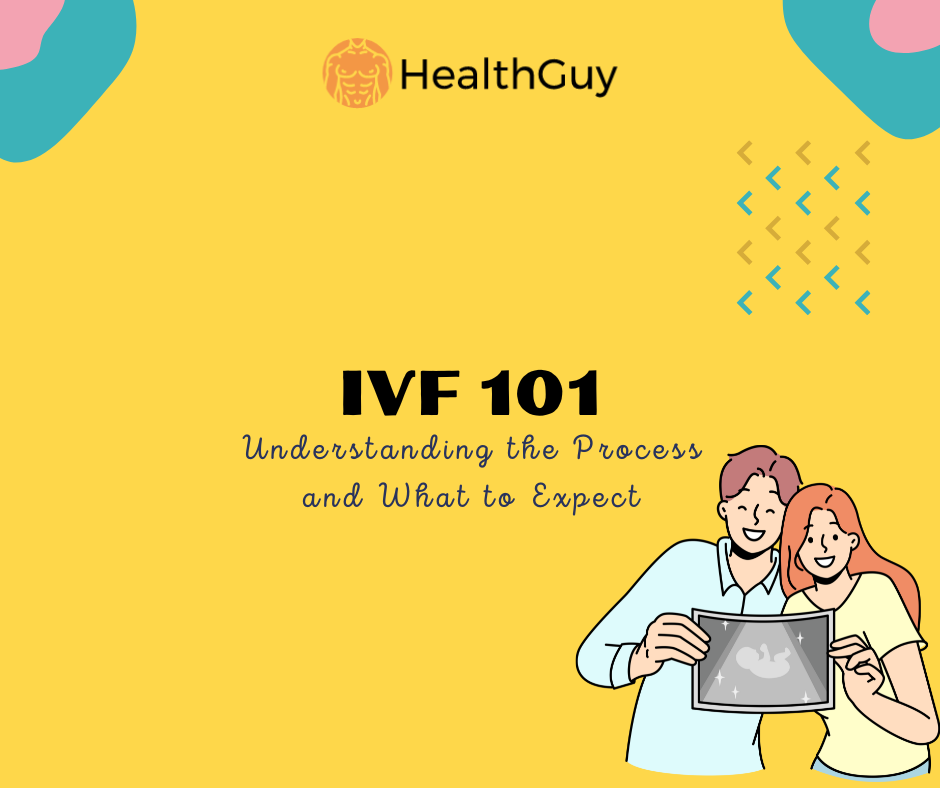
IVF 101: Understanding the Process and What to Expect
In-vitro fertilization (IVF) is a medical procedure used to help couples having difficulty conceiving a child. Here’s a detailed breakdown of how IVF works and what to expect:
Who is a good candidate for IVF?
IVF is typically recommended for couples who have been trying to conceive for a year or more but have not been successful. It may also be recommended for couples who have certain fertility problems, such as blocked fallopian tubes or low sperm count.
How does the IVF process work?
The IVF process begins with the stimulation of the woman’s ovaries using hormone medications. These medications help the ovaries produce multiple eggs, which are then retrieved through a minimally invasive procedure called egg retrieval. During egg retrieval, a doctor inserts a thin, hollow needle into the ovaries through the vagina to collect the eggs.
Once the eggs are collected, they are combined with sperm in a laboratory dish, where they are allowed to fertilize and form embryos. The resulting embryos are then monitored for a few days to ensure they are developing properly.
What happens during embryo transfer?
The embryos that are deemed to be the healthiest are selected for transfer into the woman’s uterus. Embryo transfer is a simple procedure that involves placing the embryos into the uterus using a thin catheter. This procedure is typically performed under ultrasound guidance to ensure the accurate placement of the embryos.
What happens after the embryo transfer?
After embryo transfer, the woman may be prescribed medications to support the development of the pregnancy. A pregnancy test is typically performed about two weeks after embryo transfer to determine if the procedure was successful.
What are the pros and cons of IVF?
Pros:
- Better chance of pregnancy: IVF can increase the chances of a successful pregnancy for couples struggling with infertility.
- Timing control: IVF provides more control over the timing of conception, which can be especially helpful for couples with busy schedules or medical issues.
- Genetic screening: IVF allows for genetic screening of embryos before they are transferred, reducing the risk of passing on genetic disorders.
- Donor options: IVF offers the possibility of using donor eggs, sperm, or embryos for couples who cannot conceive with their gametes.
Cons:
- Emotional and physical stress: IVF can be a difficult and stressful process, particularly for women undergoing hormone treatments and egg retrieval procedures.
- Risk of multiple pregnancies: IVF increases the chance of multiple pregnancies, which can lead to complications.
- Expense: IVF is an expensive procedure that may not be covered by insurance.
- No guarantee of success: IVF is not always successful, and even if it is, there is no guarantee of a healthy pregnancy or a live birth.
- Ethical considerations: IVF raises ethical concerns about embryo creation and destruction, as well as the use of donor gametes.
What should you consider before pursuing IVF?
If you are considering IVF, it’s important to speak with a fertility specialist who can help you understand the process, its risks and benefits, and whether it’s the right option for you. Your doctor can also help you explore alternative options, such as intrauterine insemination (IUI) or adoption.
The Difference Between IVF and Test Tube Babies. Both are the same?
No, IVF (in vitro fertilization) and test tube babies are not the same things, but they are related.
IVF is a type of assisted reproductive technology (ART) that involves fertilizing an egg with sperm outside of the woman’s body, in a laboratory dish. The fertilized egg, or embryo, is then transferred back into the woman’s uterus to develop into a pregnancy.
A “test tube baby” is a term that was used in the past to refer to babies conceived through IVF. The term comes from the early days of IVF when embryos were placed in laboratory glass tubes for culture before being transferred to the woman’s uterus. However, this term is no longer commonly used, as the process of IVF has evolved and improved over the years.
Today, IVF involves more advanced laboratory techniques and technology, and fertilization and embryo culture may take place in specialized plastic dishes rather than test tubes. In addition, many other types of assisted reproductive technologies available today can be used to help couples conceive, such as intracytoplasmic sperm injection (ICSI) and gamete intrafallopian transfer (GIFT).
So while IVF is one type of assisted reproductive technology that may be used to conceive a “test-tube baby”, the term “test-tube baby” is not an accurate or commonly used term for babies conceived through IVF today.
Overall, IVF can be a useful option for couples struggling with infertility, but it is important to carefully consider the potential risks and benefits and work closely with a healthcare provider to make an informed decision.
